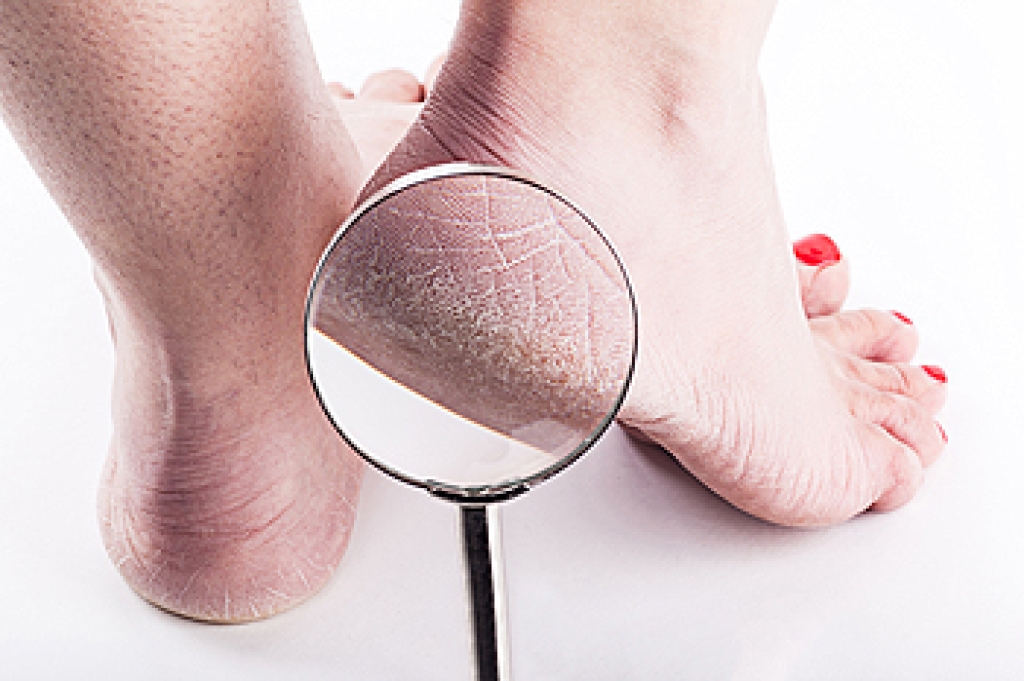
Cracked heels are a common foot ailment that can cause discomfort and affect our overall foot health. While several factors contribute to this condition, vitamin deficiencies play a crucial role in its development. Dry and rough skin may develop from getting inadequate amounts of vitamin A, and this generally precedes cracked heels. Vitamin E is known for its skin-nourishing properties, and insufficient vitamin E can result in decreased skin elasticity. This can make the heels more prone to cracking. As a potent antioxidant, vitamin C promotes collagen production, helping to maintain skin integrity and prevent cracks. Lack of B vitamins, particularly B3 or niacin, and B7 orbiotin, can lead to dry, flaky skin, contributing to heel fissures. To combat cracked heels, it is beneficial to eat a well-balanced diet rich in fruits, vegetables, and whole grains, which are all abundant in vitamins and nutrients. Additionally, moisturizing feet regularly, exfoliating gently, and wearing supportive footwear may help to prevent further damage. By addressing vitamin deficiencies, significant strides can be taken toward achieving smooth and healthy heels.
Cracked heels are unsightly and can cause further damage to your shoes and feet. If you have any concerns, contact one of our doctors from Favor Foot Ankle Leg & Wound Center. Our doctors can provide the care you need to keep you pain-free and on your feet.
Cracked Heels
Cracked heels appear unappealing and can make it harder for you walk around in sandals. Aside from looking unpleasant, cracked heels can also tear stockings, socks, and wear out your shoes. There are several methods to help restore a cracked heel and prevent further damage.
How Do You Get Them?
Dry skin is the number one culprit in creating cracked heels. Many athletes, walkers, joggers, and even swimmers suffer from cracked heels. Age and skin oil production play a role to getting cracked heels as well.
Promote Healing
Over the counter medicines can help, especially for those that need instant relief or who suffer from chronic dry feet.
Wear Socks – Wearing socks with medicated creams helps lock in moisture.
Moisturizers – Applying both day and night will help alleviate dryness which causes cracking.
Pumice Stones – These exfoliate and remove dead skin, which allows for smoother moisturizer application and better absorption into the skin.
Change in Diet
Eating healthy with a well-balanced diet will give the skin a fresh and radiant look. Your body responds to the kinds of food you ingest. Omega-3 fatty acids and zinc supplements can also revitalize skin tissue.
Most importantly, seek professional help if unsure how to proceed in treating cracked heels. A podiatrist will help you with any questions or information needed.
If you have any questions, please feel free to contact our office located in South Amboy, NJ . We offer the newest diagnostic and treatment technologies for all your foot care needs.
